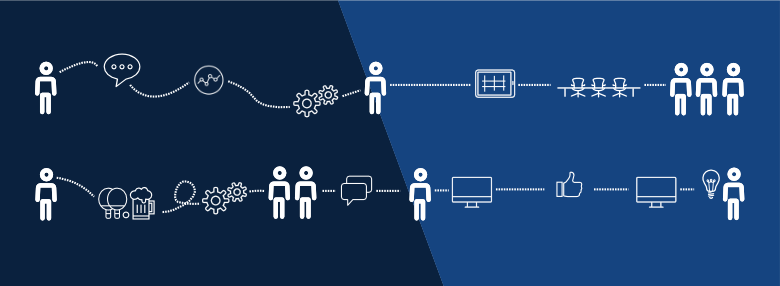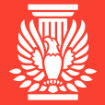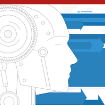The power of social data dawns for workplace

From analysis to prediction: more data, more great spaces
Every time you swipe a credit card, call customer service, open an email to use a coupon, click on a company’s website, or fill out an online survey, there’s a grocery store, a bank, a clothing retailer, a government agency, a software maker, or someone else paying attention.
They want to figure out how old you are, if you’re married, if you have kids, how much money you make, what you like to do in your spare time—any information that can help them predict what you want to buy so they can advertise those very goods and services directly to you.
This mass collection and use of personal data has been going strong for years, and with very good reason: it works. Remember the 2012 New York Times story about the dad who learned his teenage daughter was pregnant when Target sent her ads for maternity products?
So when is the world of workplace design going to catch up with these savvy retailers, lenders, and Uncle Sam? When are we going to start capturing and using available data to make built environments that better accommodate and anticipate occupant desires?
That time is now! We’ve been talking about this for a while, but now the real-world examples are accumulating daily.
As this power of social data dawns for workplace, see what it can do for your office, company, and employees in the “On our minds” section, below.
On our minds
Last month, our newsletter explored what we call the “digital layer” of user experience in today’s technologically equipped buildings. This month, we’re turning from that UX perspective, to their “back end”: how can employers, facilities managers, and technologists use the data all those sensors, apps, and star-ratings are generating to make workplaces better for people?
One method employed to great effect by WeWork: an app to manage almost every feature of you workplace. Back in December, design researcher Carlo Bailey, explained how tenants use the WeWork app to book and rate conference rooms (among many other functions) at an event we organized with the Center for Architecture. Carlo explained that WeWork studies those reservation records and feedback to learn which rooms are most popular and why, then uses that information to redesign underperforming spaces. No one seems to be meeting in the room with the too-loud wallpaper? Let’s tone it down. That funky chair looks cool, but gets low marks for comfort? Replace it. This works like a concise data feed for a fail-fast approach to facilities management.
Another way to get actionable data is by tracking employees’ emails and chat logs (not the content - just the context), something Boston Consulting Group (BCG) is mastering in their new NYC office. For example, which employees are sending the most electronic messages? If it’s the ones whose desks are tucked away in a corner, bringing them closer to the action could decrease their dependence on the keyboard and encourage more face to face conversation. (We’ll get a chance to spend some more time in this exciting space during next month's WorkTech17 Masterclass.)
After all, the bottom line of this social data is… the bottom line. When we harness the wealth of real-time workplace information, we can tell when the last worker leaves for the night and turn the lights off behind her; we can know when employees are too hot and turn the thermostat down before they open a window; we can learn what products, services, and spaces nobody’s using and stop investing in them. All these help curb costs.
The socially-enabled building offers a constant feedback mechanism for recommending and enacting changes that make occupants’ lives easier and better. PLASTARC exists to put the user at the center of workplace research, to advocate for and enable the use of social data to optimize workplace design and performance. For better or worse, the opportunities for improvement are limitless.
Every day we see more real-world evidence that the future workplace will be shaped and continuously reshaped by user data. Soon, we’ll be able to understand as much about the demand for work environments and architectural features as we do right now about the demand for products in a grocery store. with these unique skills and methods, we are moving from analysis to prediction of both the desirability and utility of space.
From the archives
In Case You Missed It

2017 CoreNet Global Summit
We thoroughly enjoyed our first speaking engagement at a conference in Asia last month. In Shanghai we shared the stage with the Verizon Global Real Estate team to discuss a global coworking program we’ve helped them create.

Wharton People Analytics Conference
For the the third year, we spent an exceptional two days in Philly to focus on people analytics in organizational decision making - kind of like Moneyball for workplace. This year PLASTARC was proud to be a finalist in the startup competition!

The Rise or Fall of Activity Based Working?
[ABW has been on our minds a lot lately](http://plastarc.com/newsletter/activity-based-working). Early last month, we grabbed a front row seat for this insightful presentation about the factors that can either promote or stymie successful ABW programs.
Looking Ahead
At PLASTARC, we love getting up close to big data, but we also love getting face time with fellow designers, our friends in talent management, and business leaders across industries. In the next few weeks, you’ll be able to find us learning, presenting, and/or mingling at these great events:





